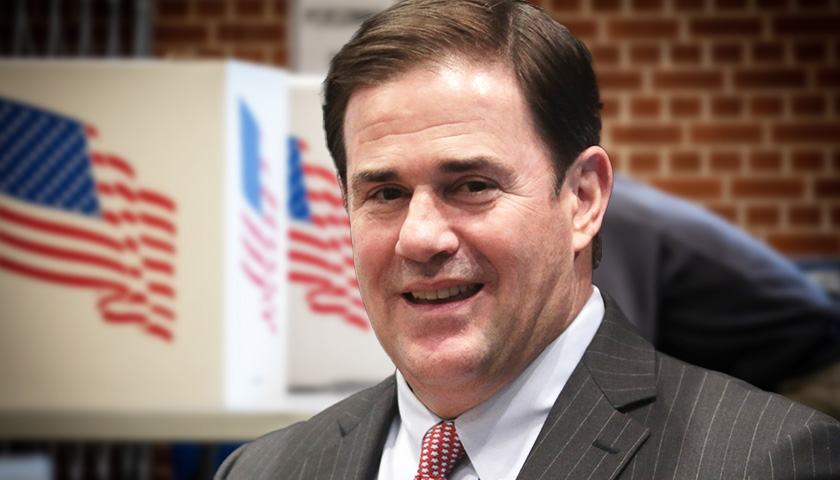by Todd Carney
In May, state Sen. Doug Mastriano won the Republican nomination for governor of Pennsylvania – much to the consternation of his party. Many Republicans felt that Mastriano had no chance of winning because of the far-right positions he took in the primary and during his brief career as a state senator. They pointed out that Democrats had even spent money to help make Mastriano the nominee because he was such a weak candidate.
But in the nearly three months since winning the nomination, Mastriano has run a disciplined campaign that has avoided gaffes or divisive statements. Two of the three polls taken since the primary election show the Democratic nominee, Pennsylvania’s current attorney general Josh Shapiro, holding a slight lead, but within the margin of error. Given that Pennsylvania votes 2.9 percent more Republican than the nation, and President Joe Biden has record-low approval ratings, Mastriano has a chance of winning. You might think that Republicans would prioritize a race like this – especially with a pivotal Senate race and several swing congressional races this cycle and given Pennsylvania’s status as a swing state in presidential elections. But the chair of the Republican Governors Association, Arizona Gov. Doug Ducey, has made it clear that for now, national Republicans will not support Mastriano.
Ducey told CNN that the RGA does not support “lost causes or landslides.” As a campaign strategy, this logic makes sense, but given the current poll numbers, Mastriano’s race looks winnable. Why is Ducey so resistant?
A look at his background might offer some clues. Ducey was once a rising star in the party. He even managed to win reelection by a landslide in 2018, a tough year for Republicans, while supporting conservative policies. In 2020, however, Ducey found himself in Donald Trump’s crosshairs because he refused to overturn Arizona’s election results. Things got worse from there. As the Theranos founder Elizabeth Holmes fraud trial started, Ducey faced negative headlines for helping change Arizona law to support her initiatives. Ducey vetoed election-security and anti-woke education bills. He now ranks in the bottom five of least popular governors, with a negative net approval rating.
Several observers have noted that Ducey’s comments about Mastriano seemed to be more about his personal grudge against Trump. But the RGA is not one person. Governors, staff members, and donors help run the organization. Mastriano even went to the RGA meeting in Aspen to make his case there. He reportedly received a chilly reception.
A look at other prominent figures in the RGA helps explain why. Former New Jersey Gov. Chris Christie is spearheading the organization’s donor program. Christie played a prominent role in helping Trump win the Republican nomination in 2016, but he has frequently been at odds with him since. The RGA’s executive committee includes Maryland governor Larry Hogan, who has refused to back the GOP nominee in his own state this cycle while parroting liberal talking points against Florida Republican Gov. Ron DeSantis’s parental rights bill. Hogan also refused to vote for Trump in 2020 and turned a blind eye to Covid-19 fanaticism, while spreading some of his own. Also on the executive committee is Indiana Gov. Eric Holcomb, who recently vetoed a bill to protect biological female athletes in school sports. Finally, the committee also includes Massachusetts Gov. Charlie Baker. Like Hogan, Baker did not vote for Trump and took a heavy hand on Covid-19 as well.
Clearly, then, those heading up the RGA are out of line with Republican voters and much of America. Given their own political failures, these leaders lack the credibility to declare Mastriano unelectable.
The reception from Pennsylvania’s GOP establishment has mirrored that of the national establishment. GOP Sen. Pat Toomey has declined to endorse Mastriano – a bit ironic, one might say, considering that early in Toomey’s career, establishment Republicans undercut him by claiming that he was too radical. A group of moderate Pennsylvania Republicans has endorsed Shapiro.
The main exception has been popular Florida Republican Gov. Ron DeSantis, who will campaign with Mastriano next week. But beyond DeSantis, state and national Republicans are withholding support for Mastriano in what could be a winnable race.
Consider that Pennsylvania’s Democratic Gov. Tom Wolf ranks in the bottom 10 least popular governors. Wolf presided over a nursing home Covid-19 scandal, as did disgraced New York governor Andrew Cuomo. Wolf has overseen two disastrous elections in Pennsylvania due to his inability to cut an election-reform deal with the Republican legislature. He has also blocked funding for charter schools and has put stringent Covid-19 regulations on schools.
Pennsylvania’s gubernatorial race is nationally significant. Pennsylvania is the sixth most populous state and a longtime swing state. And yet, unless things change soon, the man whom Pennsylvania Republicans have chosen as their nominee for governor will fail to get a fair shake from his own party, and Pennsylvanians will face an election where establishment figures on both sides have bolstered the Democratic candidate. The Keystone State’s voters deserve better.
– – –
Todd Carney is a lawyer and frequent contributor to RealClearPolitics. He earned his juris doctorate from Harvard Law School. The views in this piece are his alone and do not reflect the views of his employer.
Photo “Doug Ducey” by Gage Skidmore. CC BY-SA 2.0. Background Photo “Election Day 2020” by Phil Roeder. CC BY 2.0.




